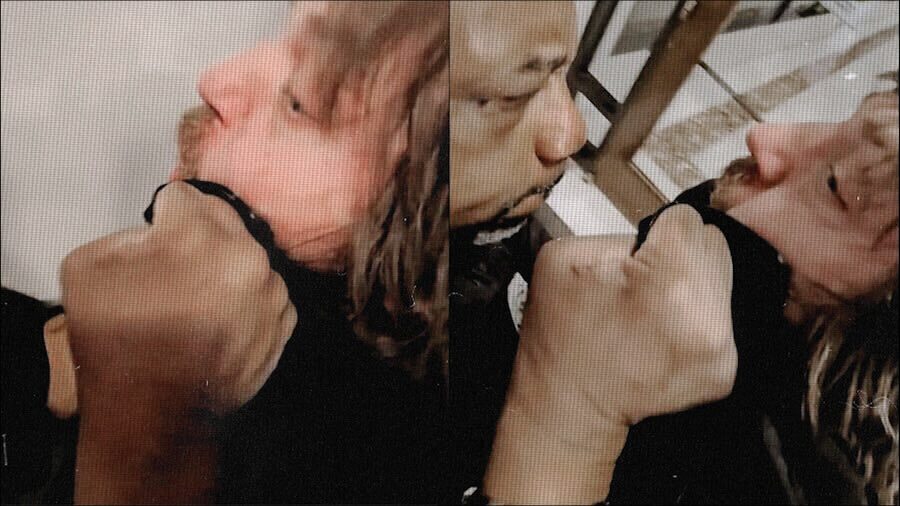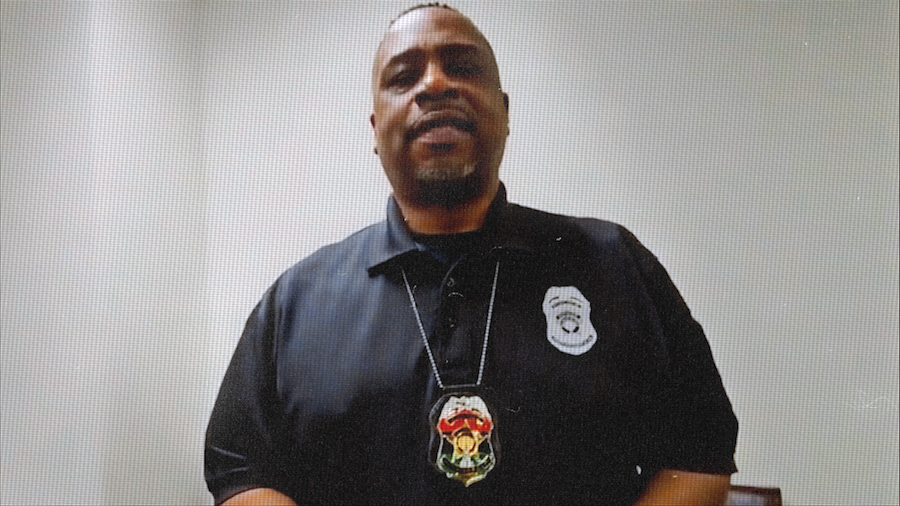In the wake of growing concerns over transparency and accountability in the Indianapolis Police Department, on February 28, Bobby Mills embarked on a mission to shed light on the inner workings of local elected officials occupying downtown Indianapolis. Armed with a camera and a steadfast belief in the public’s right to information, Mills intended to record and share insights into the legal processes impacting his pending cases. What began as a peaceful endeavor to invoke his Freedom of Information Act rights quickly escalated into a stark confrontation that brought into sharp relief the often fraught interplay between civil liberties and state-enforced justice.
Testing the length of his chain
Mills started documenting his interactions with government officials when he arrived, only to be met with swift resistance: “Do I need an appointment to be in a public building?” Mills inquired, challenging the sudden directive against recording the exchange. His question ignited a chain of events that underscored the contentious nature of his endeavor. Mills is a civil rights journalist who works with a national group of journalists who test the limits of democracy under capitalism. Mills and his group document their exchanges with public officials that expose that bourgeois democracy is a shell covering a more violent and repressive system.
The tension quickly mounted as a clerk from the Prosecutor’s Office called in law enforcement. Surrounded by three sheriff’s deputies and an IMPD officer in a building funded by taxpayers but privately owned, Mills found himself hemmed in on all sides. In seeking transparency, he asked the officers to identify themselves. This request sparked a grave response from Officer Kevin Russell. As Mills aimed his camera phone at Russell’s badge, which commemorated Black History Month, Russell grabbed Mills by the collar and pinned him against the wall, restricting Mills’ ability to breathe before Russell forced him to the ground. The incident, caught on camera, was a glaring display of force. Mills’ immediate cry, “You putting your hands on me? That’s assault,” became a powerful rebuke against the unnecessary aggression that marked this confrontational moment.
In February, the IMPD introduced a red, black, and green police badge purportedly to honor Black History Month. This gesture, they claimed, was meant to celebrate a history rich with stories of righteous resistance against state violence. However, the badge worn by Officer Russell during his encounter with Mills symbolizes a deeper issue: the IMPD’s attempt to co-opt radical Black symbols—emblems of community, care, and defiance against oppression. This appropriation stands in stark contrast to the lived realities of Black families who have long sought justice for loved ones harmed by IMPD actions. The community’s discernment between genuine solidarity and superficial gestures of support is sharp. Mills’ confrontation, marked by violence rather than understanding, echoes the grievances and struggles faced by these families, revealing the chasm between the IMPD’s symbolic gestures and their actions on the ground.
Following this tumultuous encounter, the State of Indiana brought Criminal Trespass and Disorderly Conduct charges against Mills. He vehemently disputes these charges, denouncing the disproportionate response and asserting the infringement of his rights due to the flawed legal proceedings.
The people fight to win
Mills’ loving wife, Wanda, showed her support by being present at the pretrial conference on March 20, 2024, sacrificing a day’s work to stand by him. Along with her, the Indianapolis Liberation Center and its coalition partners, who advocate for victims of IMPD-related violence, also made their presence known to demonstrate our commitment to justice. Their collective attendance served as more than just a display of solidarity for Mills; it highlighted our unified efforts to ensure accountability in law enforcement.
For months, our group has sought dialogue with Prosecutor Mears to discuss the charging process for officers involved in the deaths of Black men in Indianapolis, only to be met with resistance—culminating in being physically barred from his office. Mills’ encounter with the Prosecutor’s Office security mirrors our experiences, albeit with a more violent outcome that posed a real threat to his well-being. In court, Mills continues his fight not just for his innocence but for his very freedom. The State of Indiana attempted to revoke Mills’ bond to send him back into the Marion County Jail, where two people died within the first week of its opening.
Mills remains free and hopeful in a growing conscious movement for change
Mills reflected on the pragmatism behind the court’s decision to forgo incarceration, suggesting a desire to mitigate the financial repercussions of his potential lawsuit against the state. “I feel like the judge made the proper decision only because… it would have cost the state more money if they would have incarcerated me,” Mills shared, pointing to the economic underpinnings of judicial decisions.
Mills’ case transcends his struggle, evolving into a rallying cry for systemic change within Indianapolis’ judicial and law enforcement frameworks. “How do you think we’re gonna get there? By what we’re doing right here. Starts with one, turns into four, turns into 100, turns into 1000, 10,000, 100,000,” Mills articulates, envisioning a movement where advocacy and reform converge to catalyze significant transformation within our government.
As Mills exited the courthouse, he successfully avoided further jail time but was confronted with a new hurdle: a “Stay Away” order issued by the judge. This order restricts his access to the Prosecutor’s Office, complicating his efforts to complete his FOIA request. According to the judge’s stipulation, Mills can only enter the Prosecutor’s Office for a formal meeting with the Prosecutor—a requirement that, based on our collective experience, seems nearly impossible to fulfill given the Prosecutor’s Office’s track record of reluctance to grant such meetings.
The confrontation, legal battles, and Mills’ unwavering quest for accountability encapsulate the broader struggle against systemic injustice. With the next pretrial conference scheduled for April 24, 2024, the Indianapolis Liberation Center and community allies are galvanized, ready to support Mills and advocate for justice, equality, and transparency. This case has become a beacon for those navigating the complexities of a system needing reform.
Altogether, now, join the movement!
Your engagement is crucial as we stand on the precipice of meaningful change. Participate in the Indianapolis Liberation Center’s initiatives, educate yourself and your community about your rights, and join the movement advocating for a justice system that embodies fairness, dignity, and respect for all.
Liberation Center events, activities, actions, and analysis are all funded by the generosity of community donors. If you enjoy this content, please consider donating to the Center or becoming a Sustainer today!


